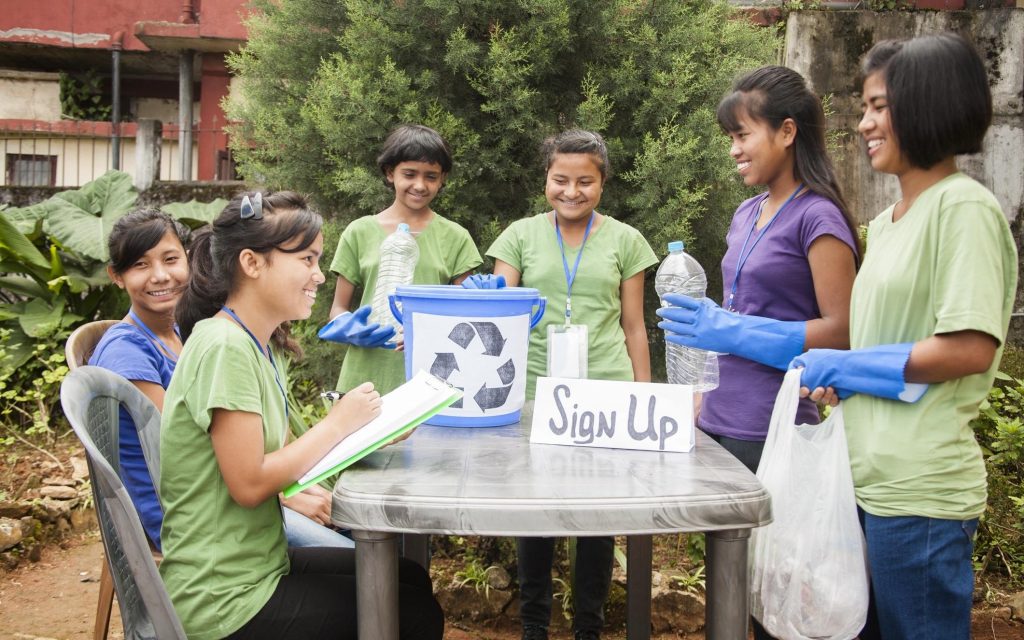As a consumer, you have the power to vote with your wallet. When you buy products from companies that are committed to sustainable and ethical practices, you’re sending a message that you care about the environment and the impact our economy is having on it.
There are a lot of great companies out there that are doing their part to make a difference, but it can be tough to know which ones are worth supporting.
That’s why we’ve put together a list of companies that deal with environmental issues that are working to make a positive impact on the planet.
Check out our list and see how you can make a difference by supporting businesses that care about the environment.
What Are Environmental Issues?
When we talk about companies that deal with environmental issues, we’re talking about businesses that work to protect the environment and reduce their negative impact on it.
There are all sorts of different ways for businesses to do this, from reducing their energy consumption to recycling and composting. And more and more companies are starting to realize that it’s not only the right thing to do, but it’s also good for business.
When a company is seen as being environmentally responsible, that sends a positive message to customers and can help attract new ones. It also helps with employee retention, because people want to work for a company that cares about the world we live in.
What Companies Deal With Environmental Issues?
You’re probably wondering which companies deal with environmental issues. And the answer is…pretty much all of them.
Large, multinational corporations have a huge impact on the environment, for better or for worse. And as consumers, we have the power to hold them accountable and demand that they make changes.
There are a number of organizations that are working to make a difference, including Greenpeace and the Sierra Club. They’re doing great work, and we should support them wholeheartedly.
Among Greenpeace and Sierra Club include others:
Earth Island Institute
The Earth Island Institute nurtures ambitious new projects, providing them with the resources they need to thrive and potentially become independent nonprofits, such as the Rainforest Action Network and the Salmon Protection and Watershed Network.
The California-based organization oversees a number of local initiatives as well as international projects such as the Center for Safe Energy and the Plastic Pollution Coalition, among many others. Supporters can choose which projects they want to fund.
It’s a big, strong umbrella under which you can still direct your assistance toward a very specific goal. You can read more on E.I.I here.
Ocean Conservancy
The Ocean Conservancy works to keep the ocean healthy in order to keep us healthy.” Current priorities include addressing ocean acidification, restoring and recovering from oil spills in the Gulf of Mexico, and protecting the Arctic ecosystem from damage caused by increased shipping and oil and gas exploration.
According to Jacques Cousteau, “the sea, the great unifier, is man’s only hope.” The old adage now has a literal meaning: “We’re all in the same boat.
Earthjustice
Earthjustice’s mission statement is simple: “Because the earth needs a good lawyer.” Earthjustice began as a Sierra Club lawsuit to protect an isolated California valley from development as a Disney ski resort but has since evolved into an independent crusade focused on high-impact, precedent-setting battles.
These are committed, experienced lawyers fighting David-and-Goliath battles that many of us feel powerless to influence.
Donating here is one way to balance the “big bucks” of large corporate interests against the often woefully underfunded voice of our struggling ecosystem. You can read more on Earthjustice here.
Rainforest Alliance
The Rainforest Alliance has gained public recognition for its independent certification of common rainforest products such as chocolate, coffee, bananas, and tea.
To obtain certification, producers must adhere to stringent sustainability standards.
In ecologically sensitive areas, the Alliance also collaborates with foresters and the tourism industry.
Their website provides consumer and traveler information, allowing us to work together to protect some of the most biodiverse, threatened, and globally critical habitats.
Friends of the Earth
Friends of the Earth describes itself as a “brave and fearless advocate for justice and the environment.” Recent campaigns have targeted bee-killing neonicotinoid pesticides, “dirty” tar sands oil extraction, and palm oil production’s environmental devastation.
Those who are opposed to the widespread use of nanotechnology, genetically modified foods, and human gene patenting will appreciate FOE’s firm stance and advocacy.
Environmental Working Group
EWG is known for researching and spreading awareness about toxic chemicals, sustainable versus exploitative agricultural practices, consumer product safety, and corporate accountability.
They are best known for their annual “Dirty Dozen” list, which reveals the highest (and lowest) pesticide concentrations in conventionally grown produce.
EWG is currently promising that monetary donations will be doubled through a matching campaign. This is a good option for those who care about eating healthily.
Natural Resources Defense Council
According to the New York Times, NRDC is “one of the nation’s most powerful environmental groups,” combining “1.4 million members and online activists’ grassroots power with the courtroom clout and expertise of more than 350 lawyers, scientists, and other professionals.” This time of year, the National Resources Defense Council (NRDC) offers holiday-ready “green gifts”: your donation results in a gift card describing the action it supports, such as “adopt a wolf in Yellowstone” or “save an acre of whale nursery,” to give tangible meaning to a personalized gift. You can know more about what NRDC does on its website.
Union of Concerned Scientists
UCS has nearly 17000 scientists on its national network who believe that “rigorous analysis is the best way to understand the world’s pressing problems and develop effective solutions to them.” UCS’s findings and statements are frequently cited by major news outlets, and the organization has established itself as a recognized and respected voice in environmental advocacy.
Their research focuses on clean energy, global warming, and the mysteries of large-scale food production. UCS’s testimony has been critical in the passage of several pieces of important green legislation.
But it’s not just these big groups that need our help. There are also small, local companies that are working hard to be more environmentally friendly. We should seek them out and give them our business whenever we can.
Every little bit helps, and together we can make a big difference.
What Are the Benefits of Working With These Companies?
When you work with a company that deals with environmental issues, you’re doing your part to help the planet. By supporting these businesses, you’re helping them to expand their reach and make a bigger impact.
But that’s not all. There are a lot of other benefits to working with these companies, including:
- Reduced environmental impact
- Improved air quality
- Increased energy efficiency
- Reduced water usage
- Reduced waste
How Can I Find These Companies?
So, now you know a bit more about companies that deal with environmental issues. But how can you actually find them?
One way is to look for labels or certification marks. For example, if you’re buying electronics, you might look for the Energy Star logo. That means the product has been tested and meets energy efficiency standards set by the United States Environmental Protection Agency.
Another thing you can do is check out the websites of organizations like Greenpeace or the Sierra Club. They often have lists of certified companies that meet their environmental standards.
Finally, you can ask your friends and family members for recommendations. Chances are, they know of a few good companies that care about the environment.
What Are the Most Common Environmental Issues?
So you’re probably wondering, what are some of the most common environmental issues that companies deal with? Well, here are just a few:
Climate change: This is a huge issue, and it’s caused by human activity. Pollution and the use of fossil fuels are the main contributors to climate change.
Deforestation: When forests are cleared for development or agriculture, it causes a loss of habitat and leads to soil erosion.
Water pollution: This is caused by things like oil spills, chemical leaks, and agricultural runoff. It can make water unfit for humans, animals, and plants to drink or swim in.
Air pollution: This is caused by factories and cars, and it can lead to health problems like asthma and respiratory illness.
What Are the Companies Doing to Help the Environment?
So, what are these companies doing to help the environment? A lot, it turns out.
Many of them are starting to use recycled materials in their products. Others are designing products that are more energy-efficient, which means they use less electricity or gas to run. And some companies are even creating packaging that can be recycled or composted.
All of these measures can make a big difference, and they’re helping to create a greener future for all of us. So if you’re looking for ways to help the environment, think about shopping with companies that care about the planet.
Conclusion
It can be hard to know which companies are truly committed to helping the environment and which ones are just paying lip service. So, how do you decide which company to support?
There are a few things to keep in mind when you’re looking for a company that cares about the environment. First, look for companies that have a long history of supporting environmental causes. Second, make sure that the company is transparent about how it is helping the environment. And finally, don’t be afraid to ask the company questions about its environmental policies.
Supporting a company that cares about the environment is one of the best things you can do to help make a difference. So, what are you waiting for? Check out the 10 Top Environmental Organizations in Florida and the 11 Best Business Grants for Single Mothers.


